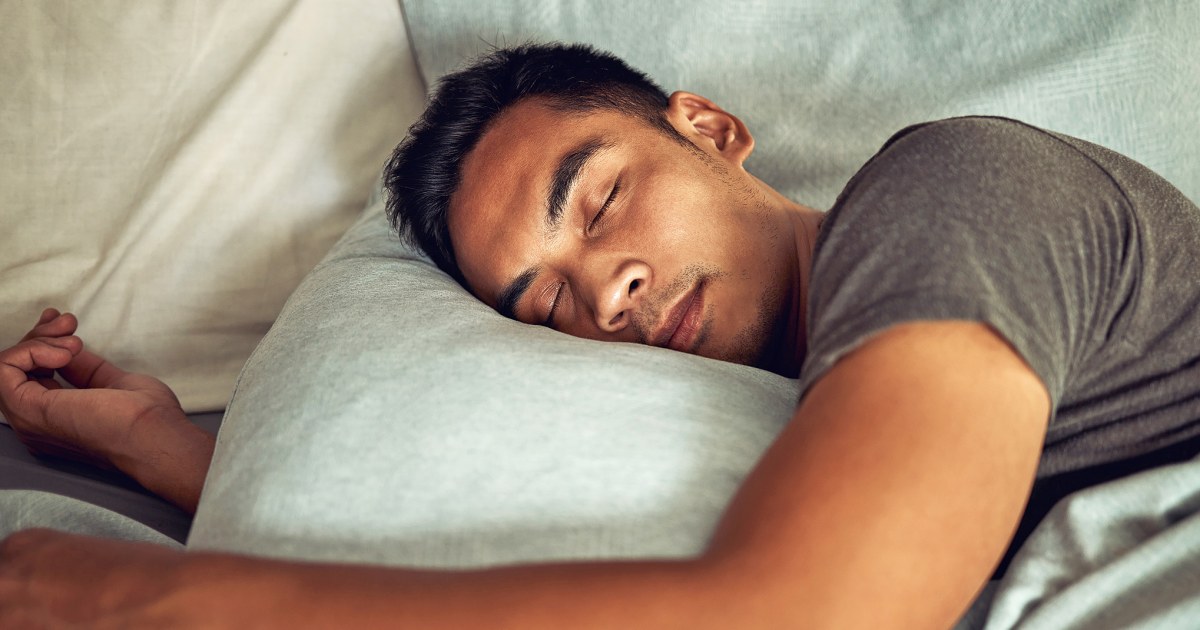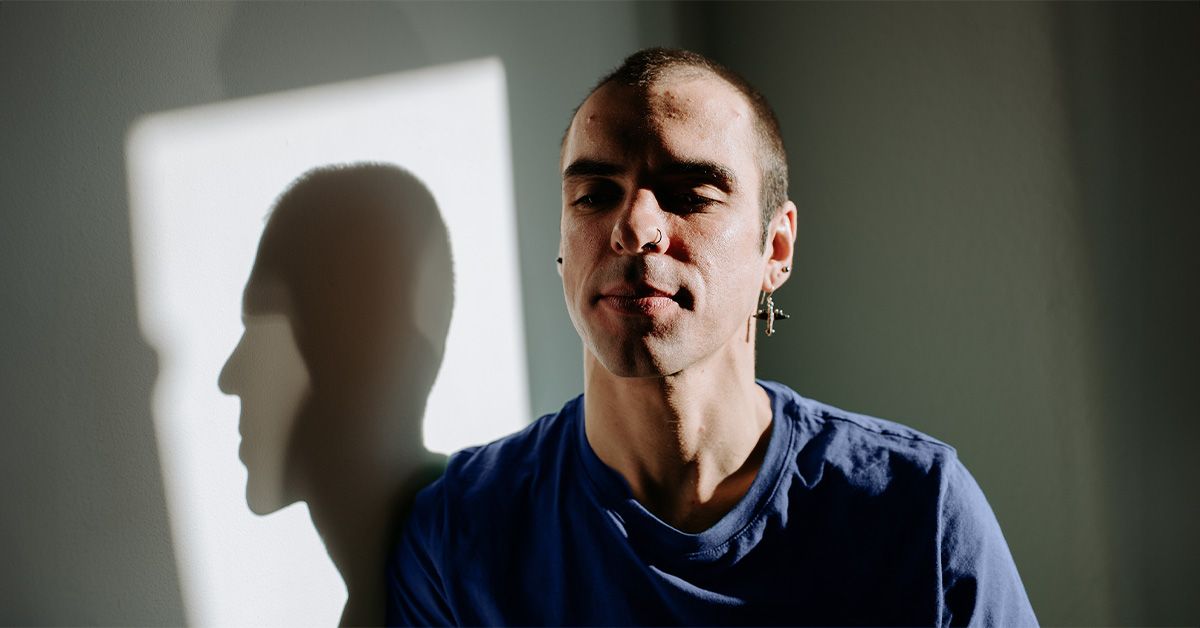If you find yourself regularly sleeping six hours a night, you’re not alone. Although most of us know sleep is essential for optimal health, getting enough of it every night is easier said than done.
Many adults sleep less than the recommended amount, which is at least seven hours in a 24-hour period, according to the American Academy of Sleep Medicine.
While it’s normal to have an occasional sleepless night, chronically sleeping too little can have detrimental health effects.
So, is six hours of sleep enough? After all, it’s just one hour less than the recommended amount. We asked sleep experts sleeping six hours and possible health effects.
Is 6 hours of sleep enough?
No, six hours of sleep is not enough for the average adult. Even if some people feel like they can function on six hours of sleep a night, the sleep debt can add up over time and have detrimental effects.
Sleep allows the body to rest and restore itself, which is key for optimal physical and mental health. A person’s sleep needs will vary based on their age, genetics, behavior and environment. Where does the seven-hour-minimum recommendation come from?
If you look at the sleep needs of a population, the distribution is shaped like a bell curve, with the vast majority of people falling in the middle between seven and nine hours, Dr. Bhanu Kolla, a sleep physician and psychiatrist at the Mayo Clinic, tells TODAY.com.
In other words, if a person sleeps for as long as their body needs to, with no disruptions or alarms, most adults will naturally sleep for that range of time (seven to nine hours) in order to feel rested, Kolla adds.
RELATED: Is 5 hours of sleep enough?
In a bell curve-shaped distribution of sleep needs, there are people who fall below the average, above it and outliers.
Some adults need nine or 10 hours of sleep every night in order to feel rested, and that’s healthy for them, says Kolla. “The AASM doesn’t have an upper limit in terms for adults in terms of how much sleep you need,” Kolla adds.
Certain people can regularly less sleep than the recommended duration, so six hours is enough for them, the experts note. “If it’s happening naturally, so they’re going to bed when they’re drowsy waking up on their own without an alarm, and they’re consistently getting six hours and functioning very well, it probably is what their body needs,” says Kolla. However, this isn’t as common, he adds.
On the extreme end, there are people can function normally with as little as four hours of sleep. These so-called “short-sleepers” will naturally sleep less than six hours a night without feeling tired or suffering adverse effects, Kolla adds.
Natural short-sleepers are very rare, Dr. Andrew Varga, a neuroscientist and physician at the Mount Sinai Integrative Sleep Center, tells TODAY.com. “These are people who have a family gene mutation. … We’re talking very tiny numbers of people,” says Varga.
“On the flip side, there are lots of people who do sleep less than six hours every night,” says Varga.
One-third of adults in the United States report that they usually get less than the recommended amount of sleep, according to the U.S. Centers for Disease Control.
Why don’t people get enough sleep?
Most people do not get enough sleep each night because of life circumstances such as work or school, their lifestyle, poor sleep hygiene or sleeping disorders, Shelby Harris, Psy.D., a clinical psychologist specializing in behavioral sleep medicine and director of sleep health at Sleepopolis, tells TODAY.com.
Examples of behaviors that can be detrimental to sleep include excessive substance use (like alcohol), especially close to bedtime, not exercising enough, too much screen time close to bedtime, consuming too much caffeine and excess daytime napping.
Certain health conditions can also disrupt sleeping patterns, such as pregnancy, autism spectrum disorders, cancer or mental health problems, per the National Institutes of Health. Sleep disorders are also a common culprit. These include sleep apnea, which interrupts breathing during the night, and insomnia, Kolla notes.
While it’s possible for some people to function on six hours of sleep, habitually sleeping less than the recommended amount can have serious consequences for your health.
Health impact of only getting 6 hours of sleep
Sleeping six hours every night without catching up can lead to chronic sleep deprivation, which increases the risk of a number of health issues, the experts note. Even one night without enough sleep can impact the body and brain the following day.
The link between sleep duration and adverse health outcomes has been well-studied, the experts note. Sleep deprivation can affect every organ of the body, says Varga.
Cognitive impairment and drowsiness
Depending on your baseline level of sleep, six hours may leave you feeling drowsy, fatigued, irritable, or give you the urge to nap or doze off throughout the day, says Kolla.
“I think if you were to actually put (people who sleep six hours a night) to the test and look at how they’re functioning during the day cognitively, you would definitely find deficits,” says Varga.
These include slower reaction time, poorer working and retrospective memory, difficulty paying attention and more.
Mental health problems
In the short-term, poor sleep can impact mood the following day, causing irritability.
Research has shown that chronically sleeping too little is also associated with an increased risk of developing depression, anxiety, bipolar disorder and Alzheimer’s, Kolla notes.
Increased risk of disease
Long-term sleep deprivation is linked to an elevated risk of heart attack, stroke, hypertension, heart disease, diabetes, kidney disease and metabolic syndrome, the experts note.
“There seems to be an increased risk (of mortality) and as you go below seven, and the further down that path you go, the higher the risk,” says Kolla.
What’s the recommended amount of sleep?
The recommended amount of sleep depends on a person’s age, and individual sleep needs can vary based on medical, lifestyle and environmental factors.
Here are the recommended durations of sleep (per 24-hour period) for each age group, according to the AASM:
- Infants (4–12 months): 12–16 hours, including naps
- Toddler (1–2 years): 11–14 hours, including naps
- Preschool-age children (3–5 years): 10–13 hours, including naps
- School-age children (6–12 years): 9–12 hours
- Teenagers (13–18 years): 8–10 hours
- Adults (18+ years): 7 or more hours
The basics of sleep quality
In addition to duration, the quality of sleep matters. When we sleep, the body should go through different stages of REM (rapid eye movement) sleep and non-REM sleep, says Varga.
During the recommended seven to nine hours of sleep, we typically go through three to five sleep cycles per night, with the duration of REM sleep getting longer each subsequent time, Varga explains. This structure is referred to as the body’s “sleep architecture.”
Disrupted or abnormal sleep architecture can worsen the quality of sleep and over time, lead to sleep deprivation, the experts note.
The timing of sleep, when you fall asleep and when you wake up, is also important, says Varga. The 24-hour sleep-wake cycle is regulated by our circadian rhythm, which responds to changes in light, per the National Sleep Foundation.
How to get more sleep
Getting more sleep is not always an easy task, the experts note, but being aware of the potential effects of sleep deprivation is a good first step. It’s important for everyone — adults and children alike — to be prioritizing sleep every night, says Harris.
The experts recommend the following steps to prioritize your sleep:
- Be consistent. Try to go to bed at the same time and wake up at the same time every day, says Harris.
- Create a wind-down routine at night to help your body relax.
- Cut down on screen time at night, and avoid using digital devices 30 minutes to one hour before bedtime, says Varga.
- Limit caffeine and alcohol intake, says Kolla.
- Exercise regularly.
- Avoid napping too close to bedtime.
If you are concerned about your sleep duration or quality, talk to your doctor to rule out any sleep disorders or underlying problems.
Read the full article here





:focal(1174x532:1176x530)/origin-imgresizer.eurosport.com/2024/11/24/4065412-82445888-2560-1440.jpg)










